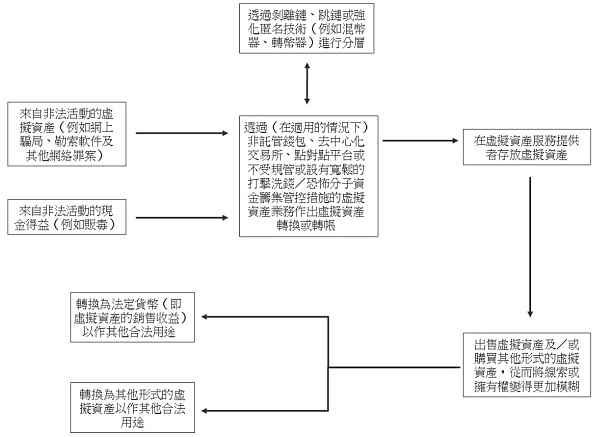Crypto Crackdown: Senator Brown Takes on Terrorism and Sanctions Evasion
U.S. Senate Banking Chair Vows to Take Stronger Action Against Crypto's Ties to TerrorismUS Senate Banking Chair to Crack Down on Crypto’s Terrorism Ties
Imagine a world where terrorists and bad actors run wild, giggling and scheming as they use cryptocurrency to fund their evil deeds. Well, fear not! U.S. Senator Sherrod Brown, Chairman of the Senate Banking Committee, is here to save the day. With his trusty crypto-cracking powers, he’s determined to put an end to the use of digital assets for terrorism financing and sanctions evasion.
In a hearing on illicit finance, Senator Brown declared, “We will examine multiple terrorist funding streams, including cryptocurrency, and consider additional measures to stop the flow of those funds.” He’s like a superhero with a cape made of blockchain, swooping in to protect both Ukraine and Israel from the likes of Russian President Vladimir Putin and Iranian-backed terrorists like Hamas.
But hold on! Before we get too carried away, let’s take a step back and reassess the situation. According to blockchain analytical firm Elliptic, reports about crypto’s role in the Israel-Hamas conflict have been blown way out of proportion. They claim the data has been misinterpreted and exaggerated. It’s like a game of telephone, where the truth gets distorted and twisted into something unrecognizable. Just because a few bad apples in the crypto world have tried to dabble in fundraising doesn’t mean the entire industry is a den of thieves.
The Wall Street Journal even jumped on the bandwagon, linking Hamas to massive crypto donations. But Elliptic, our trusty analytical heroes, quickly debunked the claim. While Hamas may have dipped its toe in the digital asset pool, the funds raised are minuscule compared to other sources. It’s like trying to fill an Olympic-sized swimming pool with a single droplet of water. Not very effective, is it?
- LIVE NOW Sam Bankman-Fried Steels Himself to Testify Today in FTX Fraud Trial
- Crypto Crime Bill Passes in the UK: Freezing Crypto Faster Than Elsa
- I Can’t Believe It’s Meta! Legal Troubles Surround AI Advancements with Child Safety Concerns
So why all the fuss? Well, it seems that some crypto proponents have taken offense to the erroneous reporting and are demanding retractions. They’re like brave knights, riding their Twitter steeds, demanding justice from the Wall Street Journal. After all, Iran is the main sponsor of Palestinian terror groups and should bear the brunt of the blame.
Senator Brown isn’t alone in his quest to tackle crypto loopholes. Senator Elizabeth Warren and over 100 of their colleagues have joined forces to combat money laundering and sanctions abuses in the digital asset realm. They’ve written letters, made speeches, and probably even sent smoke signals to emphasize the urgency. It’s like a big blockbuster movie, with politicians playing the role of action heroes, fighting against the sinister forces of financial wrongdoing.
But why all the commotion? According to Senator Brown, crypto platforms have neglected common-sense protections that keep illicit money out of the traditional banking system. It’s like leaving your front door wide open and inviting all the villains in for a tea party. We need better security measures, like an impenetrable fortress guarding our financial transactions.
The U.S. Treasury has taken some steps to sanction individuals and entities supporting Hamas, including targeting a Gaza-based exchange. But Senator Brown insists it’s not enough. He wants the administration to dedicate more resources to track, freeze, and seize any Hamas-related assets. It’s like a high-stakes game of cat and mouse, where the mouse keeps finding new hiding spots, and the cat needs a bigger bag of tricks.
You see, blocking crypto funding for terrorism can feel like playing whack-a-mole. Shut down one avenue, and criminals find another. It’s like trying to stop a leaky faucet with a Band-Aid. Terrorists are cunning, and they know how to exploit the loopholes in the system. As Senator Brown put it, “Terrorists know they can use crypto in ways they could never use dollars.” It’s a constant battle, but one worth fighting.
In conclusion, Senator Brown’s mission to crack down on crypto-funded terrorism and sanctions evasion is a noble one. But let’s remember to separate fact from fiction and not paint the entire crypto industry as a den of iniquity. There’s still room for growth and innovation, as long as we have strong measures in place to thwart the bad guys.
So, dear readers, what are your thoughts on this crypto showdown? Do you believe crypto can coexist with strong regulations to prevent illicit activities? Let the discussion begin!
We will continue to update Blocking; if you have any questions or suggestions, please contact us!
Was this article helpful?
93 out of 132 found this helpful
Related articles
- The Misadventures of Sam Bankman-Fried: A Testimony in Defense of Crypto Shenanigans
- How can Japan lead stablecoin regulation Do issuers really have asset backing them?
- Tiny Crypto Donations Astoundingly Underwhelm Hamas, Admits Elliptic
- The Deceptive Dance: Protecting Financial Freedom in the Age of Bitcoin
- UK’s FinProm A Welcome Change in Compliance, Yet Challenges Persist According to Transak’s Head of Compliance
- Oopsie-daisy! SEC Slaps BlackRock with $2.5M Fine for Investment Disclosure Slip-up
- Crypto-Fan Tom Emmer’s Rise and Fall in the U.S. House Speaker Race A Roller Coaster Ride of Epic Proportions






